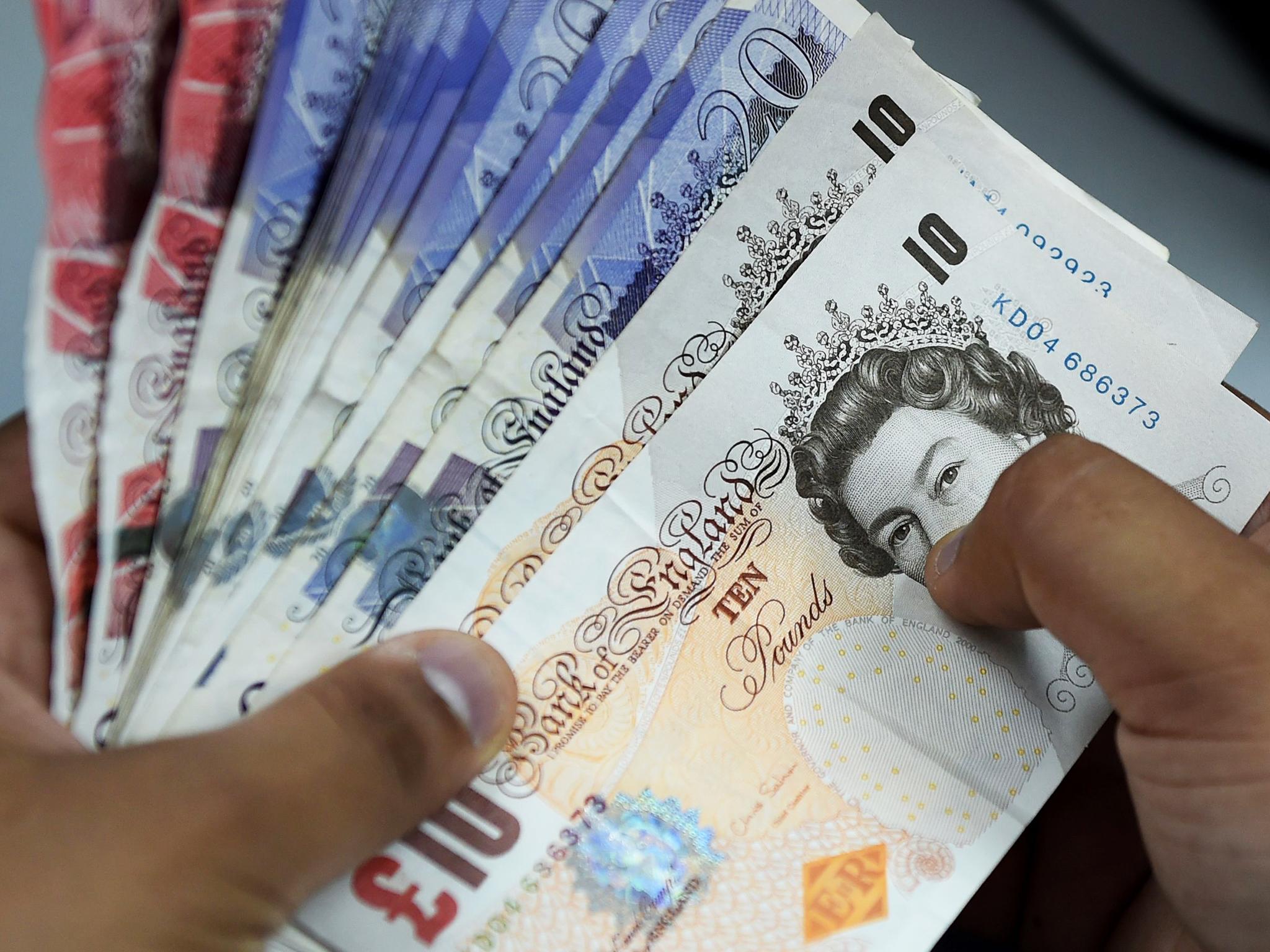Sunak faces calls for emergency budget as real wages take tumble
Decline in value of income tops 2 per cent in worst fall for nine years, as inflation outstrips pay rises

Your support helps us to tell the story
From reproductive rights to climate change to Big Tech, The Independent is on the ground when the story is developing. Whether it's investigating the financials of Elon Musk's pro-Trump PAC or producing our latest documentary, 'The A Word', which shines a light on the American women fighting for reproductive rights, we know how important it is to parse out the facts from the messaging.
At such a critical moment in US history, we need reporters on the ground. Your donation allows us to keep sending journalists to speak to both sides of the story.
The Independent is trusted by Americans across the entire political spectrum. And unlike many other quality news outlets, we choose not to lock Americans out of our reporting and analysis with paywalls. We believe quality journalism should be available to everyone, paid for by those who can afford it.
Your support makes all the difference.Chancellor Rishi Sunak was today facing calls for an emergency budget to shore up household incomes, after new figures showed real wages falling by more than 2 per cent over the last year.
Public sector workers were among the worst hit, with an average 4.2 per cent fall in the value of their pay after inflation is taken into account – the sharpest annual decline since records began.
And there were warnings that Brexit is contributing to the cost-of-living squeeze, as the red tape burden resulting from EU withdrawal hits UK exporters.
New figures from the Office for National Statistics showed that the 2.1 per cent decline in real wages recorded in February was the worst since 2013. For the three months to February, the fall in regular pay excluding bonuses was 1.8 per cent compared to the same period the previous year.
While nominal pay rose 4 per cent in the quarter, it was far outstripped by inflation, which is forecast to reach almost 9 per cent later this year.
Experts said the figures were skewed by buoyant salaries and bonuses in high-pay industries like finance and IT with the lowest-income families facing the harshest squeeze.
Stephen Evans, chief executive of the Learning and Work Institute, said: “Bonuses in sectors such as finance mean some are seeing rising pay, while those on the lowest incomes saw their benefits rise by just 3.1 per cent yesterday, far lower than inflation. This is before the rise in National Insurance and the energy price cap, so the pain is only going to grow without action.”
Mr Sunak welcomed ONS figures showing unemployment falling to 3.8 per cent, its lowest rate since 1974.
But there were also signs of a shrinking labour market, with those classed as economically inactive rising by 76,000 over the quarter to 8.9m, due mostly to older workers choosing to retire early due to the Covid pandemic.
TUC general secretary Frances O’Grady said that household incomes were being “obliterated” as a result of the chancellor’s “political choices” at last month’s spring statement, in which he set money aside for a pre-election tax cut rather than boosting welfare payments or providing more help with domestic gas and electricity bills.
“We can’t go on like this,” said Ms O’Grady. “The chancellor must come back to parliament with an emergency budget to help people through this crisis.”
She called on Mr Sunak to immediately boost the national minimum wage, universal credit and pensions and impose a windfall tax on North Sea companies to fund a cut in energy bills.
“Rising hardship is a political choice,” said the TUC chief. “Ministers must not abandon families in their hour of need.”
As the impact of this month’s 1.25 per cent hike in National Insurance contributions began showing up in pay packets, Labour Treasury spokesperson Pat McFadden said Mr Sunak had made Britain “the only major economy to land working people with higher taxes in the midst of a cost-of-living crisis."
And Liberal Democrat Treasury spokesperson Christine Jardine said: “Today’s figures confirm the Conservative cost of living nightmare facing millions of UK families.
“People are rightly angry with the chancellor for refusing to throw them a lifeline when their incomes are being squeezed.”
The co-chair of the UK Trade and Business Commission, Labour MP Hilary Benn, said that action was needed to tackle the “artificial barriers to trade” created by Brexit in order to save the UK from continuing lost growth.
“The UK’s long term exports appear to be lagging behind our European neighbours,” said Mr Benn. “The key difference between us and them is the mountain of red tape that has been imposed on UK businesses post-Brexit.”
Mr Sunak said that the government was “helping to cushion the impacts of global price rises” through a package of support worth over £22 billion this year, including a £150 council tax rebate and a £200 loan to pay for energy bills, to be repaid over following years.
And he said that the ONS figures showed “the continued strength of our jobs market, with the number of employees on payrolls rising once again in March and unemployment falling further below pre-pandemic levels”.
But the head of economics at the British Chambers of Commerce, Suren Thiru, said that the joblessness figures were “flattered” by the shrinking size of the UK workforce.
“With rising economic inactivity confirming that lots of workers have seemingly quit the jobs market completely, severe staff shortages may remain a persistent drag anchor on economic activity,” he said.
Falling real wages and low levels of household economic confidence risk stifling consumer spending, as families remain wary of running down savings built up during coronavirus lockdowns, said Mr Thiru.
Join our commenting forum
Join thought-provoking conversations, follow other Independent readers and see their replies
Comments